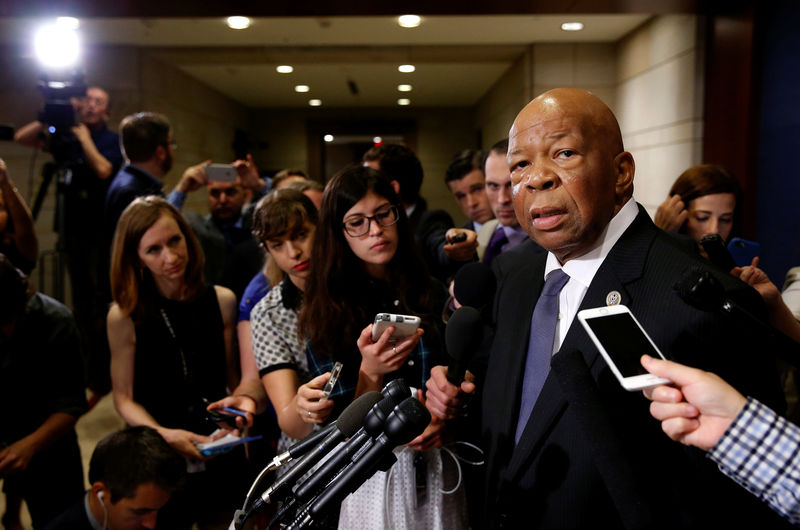WASHINGTON (Reuters) - U.S. President Donald Trump decided to fire FBI chief James Comey before Deputy Attorney General Rod Rosenstein wrote a memo outlining his own concerns, Rosenstein said in a statement on Friday that lent credence to Trump's version of events.
When it was announced this month that Comey had been fired, White House officials initially pointed to the Rosenstein memo as a reason for firing the FBI director, who was overseeing an investigation into any collusion between Russia and the Trump campaign during the 2016 U.S. presidential election.
Trump said in a subsequent interview with NBC News that he had been planning to fire Comey before he received the Rosenstein memo.
In a statement on Friday seen by Reuters, Rosenstein writes: "I informed the senior attorney that the president was going to remove Director Comey, (and) that I was writing a memorandum to the attorney general summarizing my own concerns."
The statement, first reported by NBC News, Rosenstein goes on to outline some of his concerns with Comey's job performance. But toward the end of the 2 1/2-page document, Rosenstein writes: "My memorandum is not a statement of reasons to justify a for-cause termination (firing)."
After Rosenstein briefed members of the House of Representatives on Friday, Congressman Darrell Issa was asked by reporters if Rosenstein indicated whether anyone had asked or encouraged him to write the memo about Comey.
"I don't believe he ... indicated anyone directed him but in fact he wrote the memo," said Issa, who, like Trump, is a Republican.
Some Democrats left the briefing saying they were not satisfied with the information Rosenstein provided.
"There was a presentation followed by Q and A and not a whole lot of A," said Democratic Representative Charles Crist.
Representative Brad Sherman, also a Democrat, said Rosenstein "avoided at least 10 times" Democrats' queries into whether the Justice Department official was pressured to write a memo critical of Comey.

Sherman, a member of the House Foreign Affairs Committee, told reporters that while Washington investigations are exploring whether there was collusion between Trump campaign officials and the Kremlin and a possible cover-up, "neither of them have been proven."